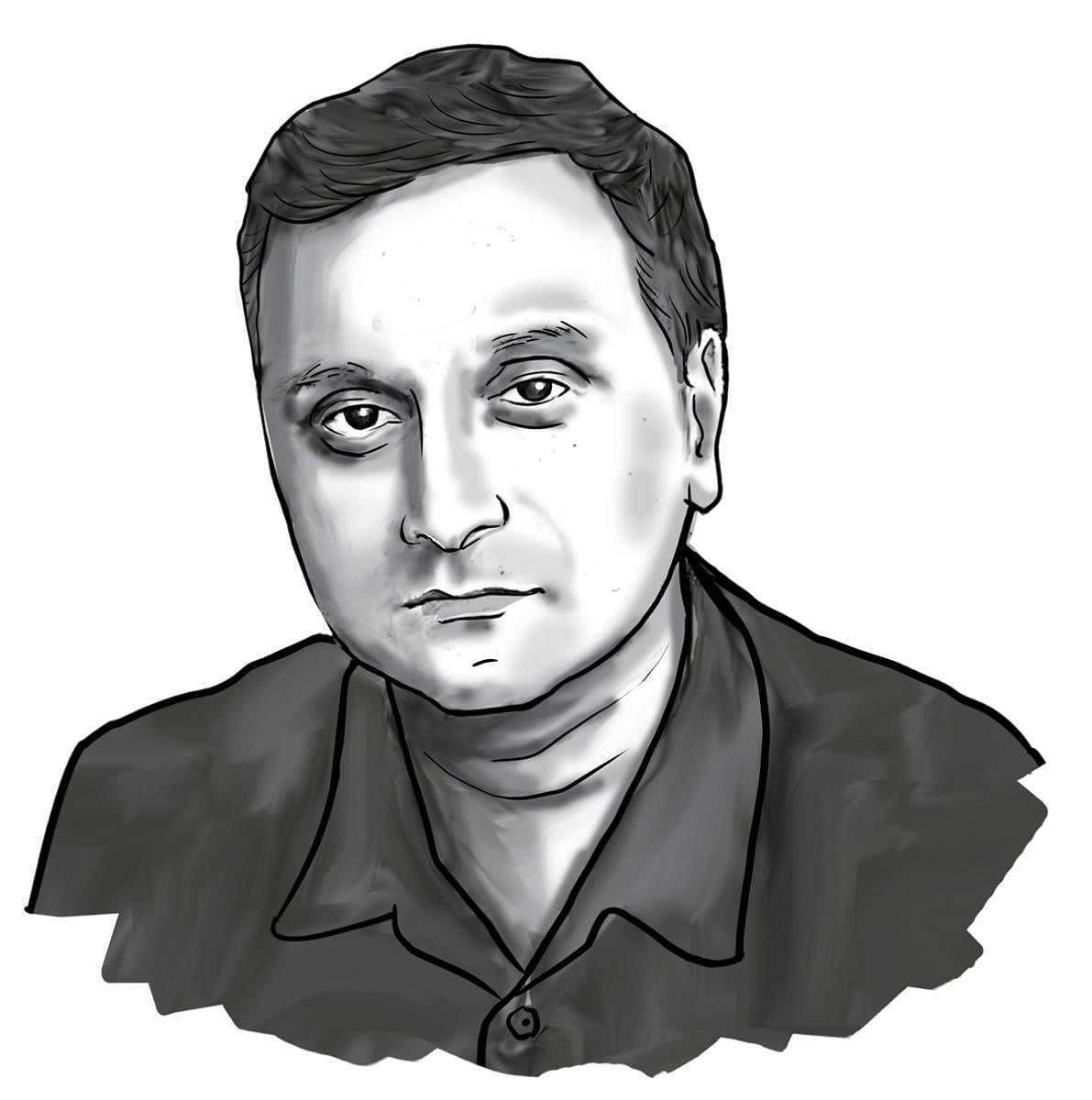
For those who grew up in Bangalore in the eighties and nineties, Premier Book Shop was simply there. Much like the camel, as Borges has reminded us, doesn’t find mention anywhere in The Quran, book lovers took Premier to be a natural part of Bangalore without feeling obliged to claim it as a special asset of the city. The recent passing away of its owner, Mr Shanbhag, from Covid-19, however, makes me think about him and his bookshop’s significance for readers like me.
Premier’s, as the regulars to the book shop called it, was inseparable from Mr Shanbhag, a fair, medium-built, balding man with sharp features. Usually in half-sleeved terrycot shirts and trousers and in leather slippers, the pleasant and reticent proprietor had a down-to-earthness about him. If Malgudi had a sizable number of English-speaking Indians, Mr Shanbhag and his shop would have easily belonged there.
My father, who loathed the ideologue’s strategy of “Catch them young!”, had made an exception with respect to the reading habit. So he took me to Premier’s frequently during my boyhood. Most of the books I acquired during my school and college years – the comics, the Ladybird books and the Penguin, Picador, Vintage, Faber and Oxford University Press paperbacks – were from here.
When anyone asked about a book’s availability, Mr Shanbhag would mutter, “Yes,” or “I’ll check,” and point in their direction or offer to locate it himself or shout — in his North Kanara Kannada — to his assistant at the back of the small, longish two-aisled shop to help find it. Treating all his customers with the same mixture of interest and detachment, he never pushed books. People felt free to hang out in his shop for hours without feeling any pressure to buy.
Books appeared crammed inside Premier’s but that didn’t seem to matter: the shop was welcoming, and the books had a rich range. Importantly, the snootiness that could easily pervade an English-language bookshop in India was absent. And, when I wanted a book badly and didn’t have the money for it, I could ask him to hold it for me. He would promptly place it on the pile of books behind where he sat and the book remained there for several weeks. Premier’s had character and felt intimate in ways that the larger, bureaucratically run bookshops in the vicinity did not.
Premier’s held out a decided intellectual seriousness. Anyone who came in looking for the Mills and Boon novels or the Robert Ludlum thrillers, for instance, could legitimately incite a smirk among my friends and me. The books inside held a mirror to the power and tastes of the English literary intelligentsia in independent India. The modern and contemporary classics of Indian, European, American as well as “World” literature made up the largest chunk of books among them, with the pulp section having only a modest share. The later entry of books in trendy social and literary theory didn’t mean diminished shelf space for Bertrand Russell and DH Lawrence. The social science community came second in influence at Premier’s.
Looking back, I cannot claim to have ever got a sense for Mr Shanbhag’s political or intellectual views. What seems amply clear though is that he had an eye for fine books, a fortuitous fact in a city with a paucity of good bookshops. He let me and countless others stay in step with the books and writers under discussion in metropolitan India and the West. If a book recommendation by Pritish Nandy in The Illustrated Weekly of India or by TG Vaidyanathan in Deccan Herald or The Hindu grabbed you, you could feel confident about finding that book at Premier’s. When little known figures got the Booker or the Nobel, you knew Mr Shanbhag would get their books soon enough.
Mr Shanbhag and his book sanctuary nourished the imagination of a few generations of readers in Bangalore. The experience happened quietly and gracefully. It was a precious gift to the city.
(The author is a professor with the ISEC who looks for new ways of looking)